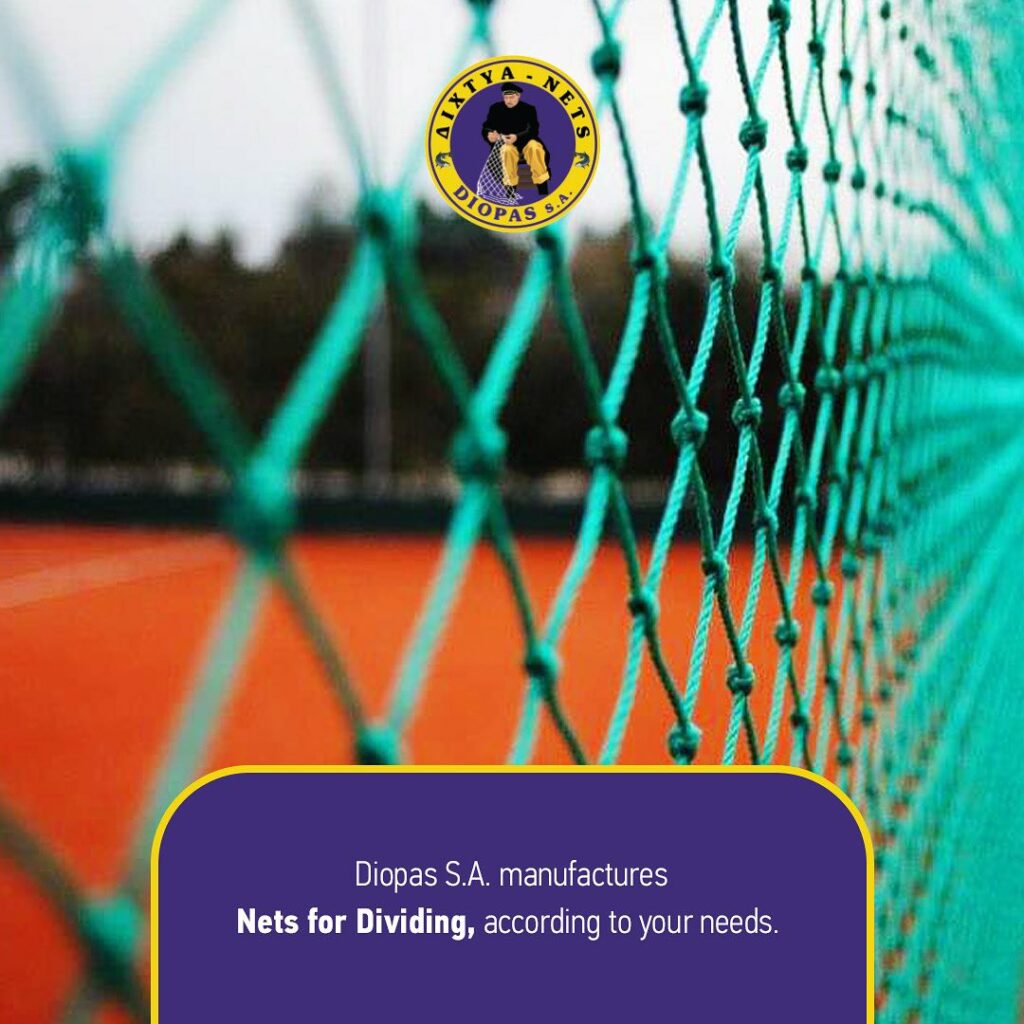An innovative net that aspires to fill the seas of the world with fish.
The company “DIOPAS S.A.” can manufacture and export nets, net cages, and ropes mainly for fish farming. However, it consistently invests in new technologies and environmental protection.
In collaboration with the University of Crete and the Hellenic Center for Marine Research (HCMR), the company created an internationally patented technology in 2015. This technology has been tested with encouraging results and is intended for implementation abroad.
As Magda Diamantidou explains, it is a “pyramid net, a relatively simple but significant discovery that protects and multiplies the number of fish. It is an innovative practice that we aim to apply more widely.
According to scientific data, out of the one million eggs produced by a fish, only 5 pairs or 10 individuals manage to survive until adulthood, as the rest become food for larger fish.
With the construction of this specific net (ECO-NET), which is a global patent, the new fish can find food and grow while avoiding predators, as the net allows it to move in and out and protect itself. The innovative net has proven, through various experiments, not only to function but also to double the population of fish in the seas.
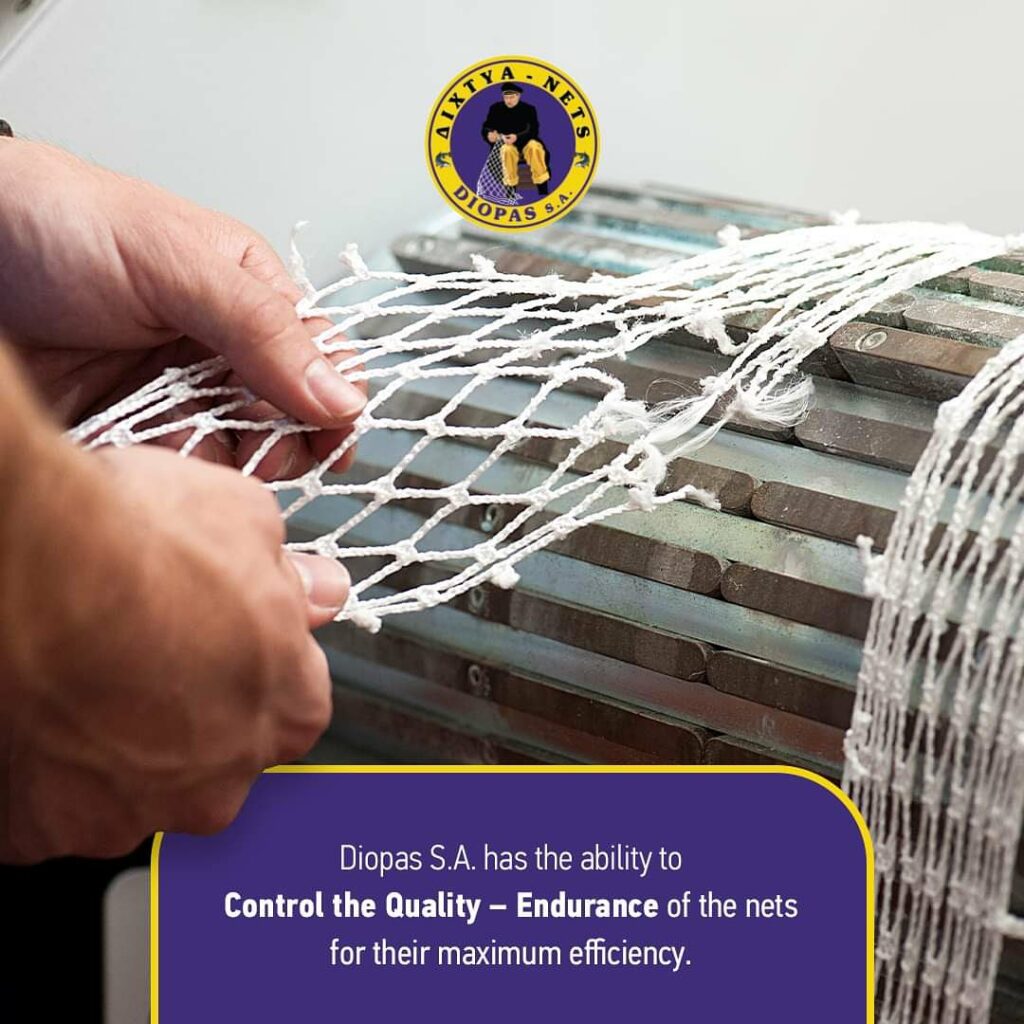
Innovative nets and a pioneering aquarium.
In collaboration with the University of Crete and the Hellenic Center for Marine Research, spherical nets were developed at the facilities of DIOPΑS S.A with a material – thread similar to the one used in the corresponding vests, which are already on the market. The use of these nets results in vessels consuming 20-30% less fuel. These nets are three times lighter than the common ones and are not pierced by fish.
The company, in collaboration with the Technology Provider (Laboratory of Ichthyology, Department of Biology, Aristotle University of Thessaloniki – AUTh), has developed the innovative tool COATFISH. These are nets that limit the accumulation of biomass during the period they are submerged in the sea, as they are impregnated with an anti-fouling substance. This new product benefits the environment, as the traps remain clean, and only the necessary species are caught, avoiding the capture of additional ones that are later discarded. The fishing tool is lighter, and there is no risk of it ending up on the seabed as a Ghost Net, and it has a longer lifespan.
The specific fishing tool was developed as part of the BLUE_BOOST project (ADRION European Program).
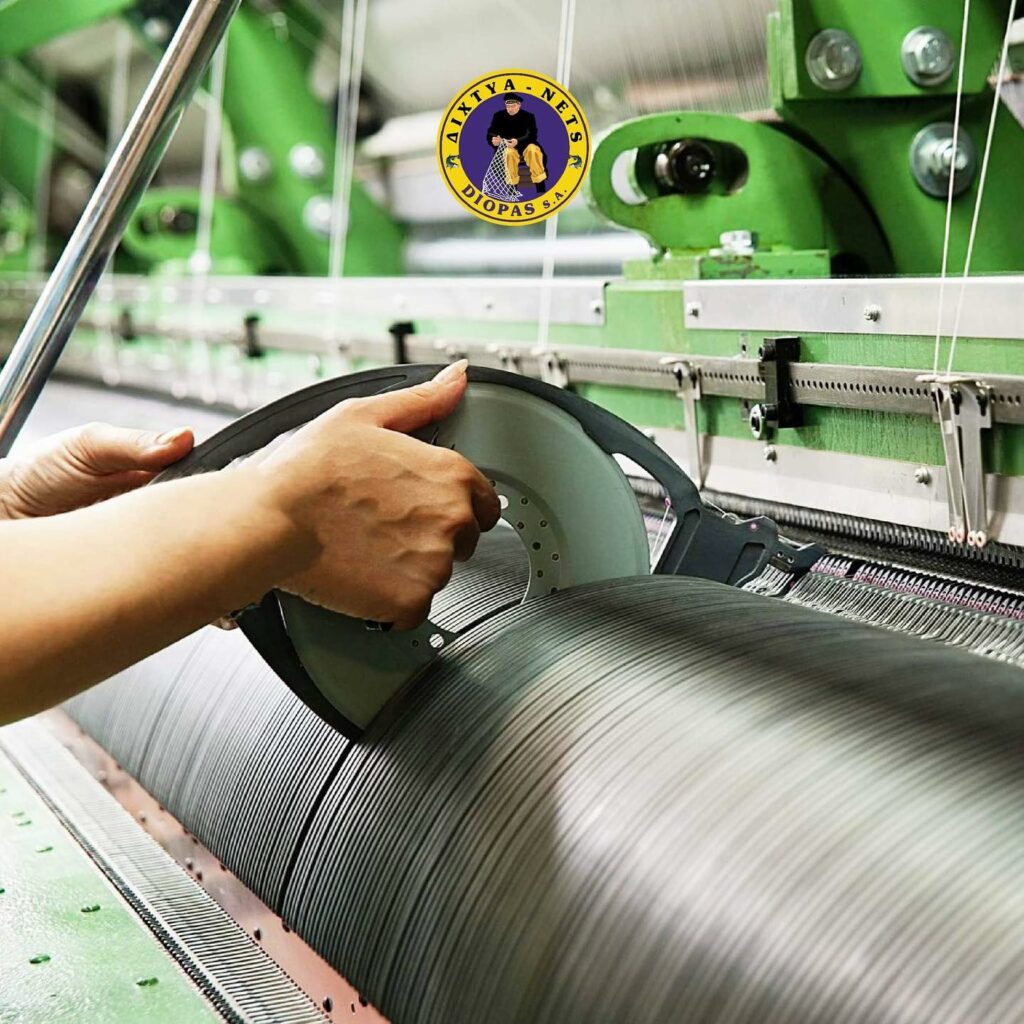
The Nea Mihaniona Aquarium, unique in the Balkans.
From sea breams, bass, and pagrus to lionfish, sunfish, koi goldfish—perhaps even… piranhas—one can observe them in the innovative private research aquarium spanning 2000 square meters at the company DIOPAS S.A.
So, 2000, meaning the number of fish (25-30 freshwater species and 50 marine species) that one will be able to see in the company’s aquarium
The northern Greek company DIOPAS SA creates the first research aquarium with marine and freshwater fish, which will have both a research character and be unique of its kind in the entire Balkan region.
Its extent will provide the opportunity for applied research in the field of fish farming, emphasizing practices that respect the environment and contribute to the circular economy.
Visitors will be able to see on a scale how an aquaculture unit operates and how net recycling is done.
The operation of the aquarium will be non-profit, with an educational, touristic, and research-oriented character. In a dedicated space, visitors will be able to see the “Home of the Mechaniot Fisherman,” where the history of the first people (refugees) who set foot in Nea Michaniona will be revived. Today, the area is considered the largest fishing village in the Balkans.
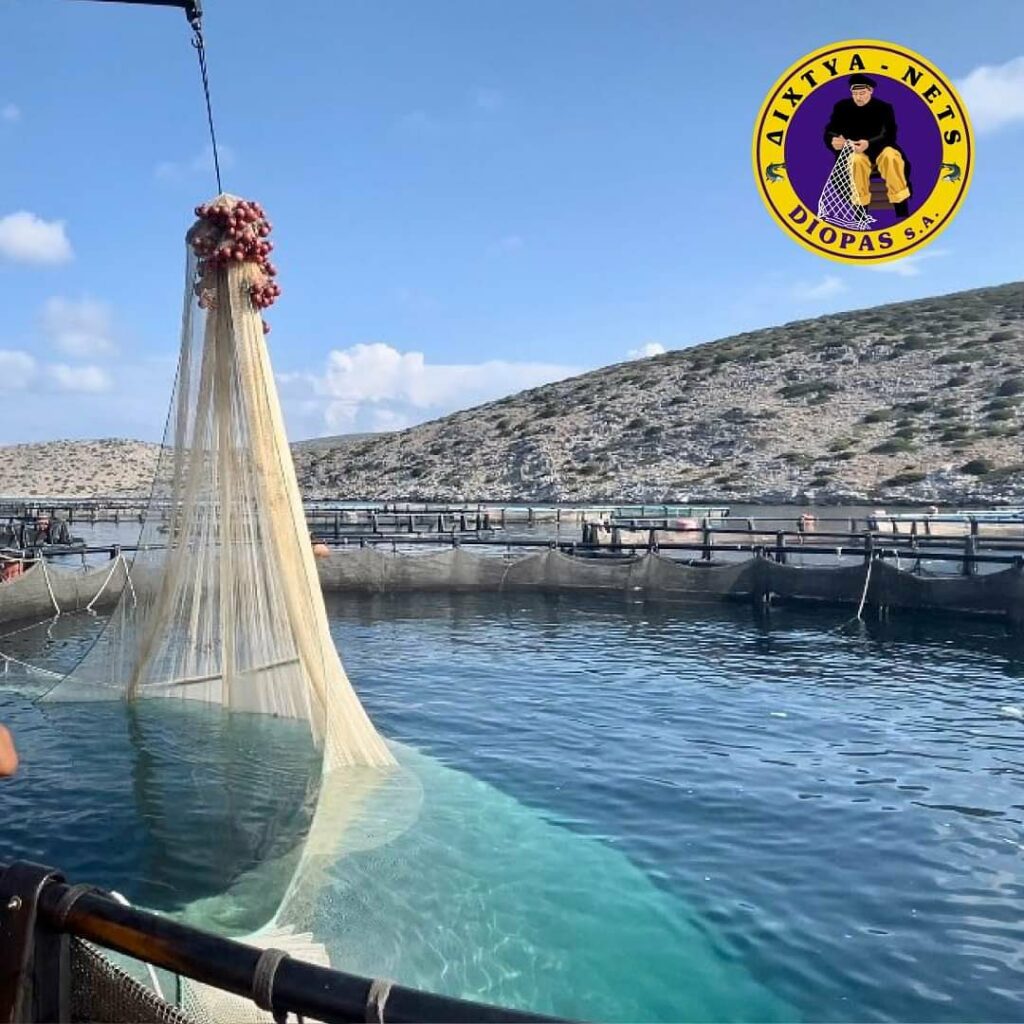
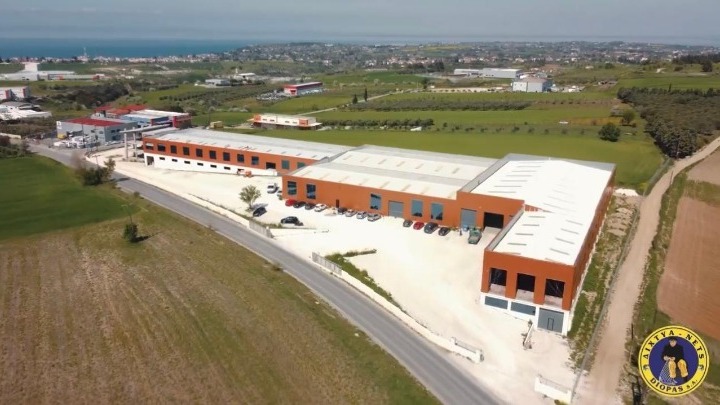
EDITOR: STELINA MARGARITIDOU
VERSION IN ENGLISH : LINA TSINGANA
